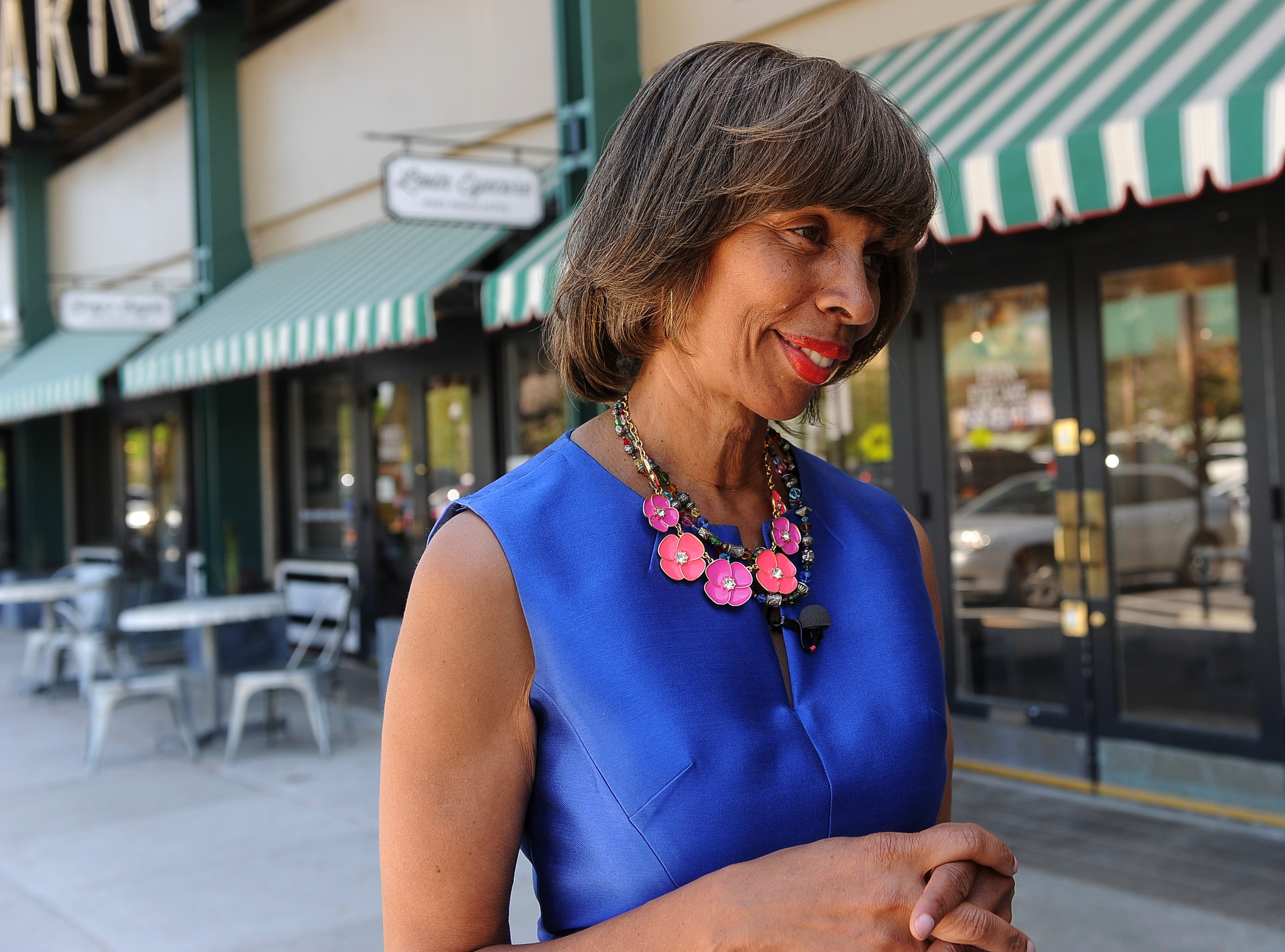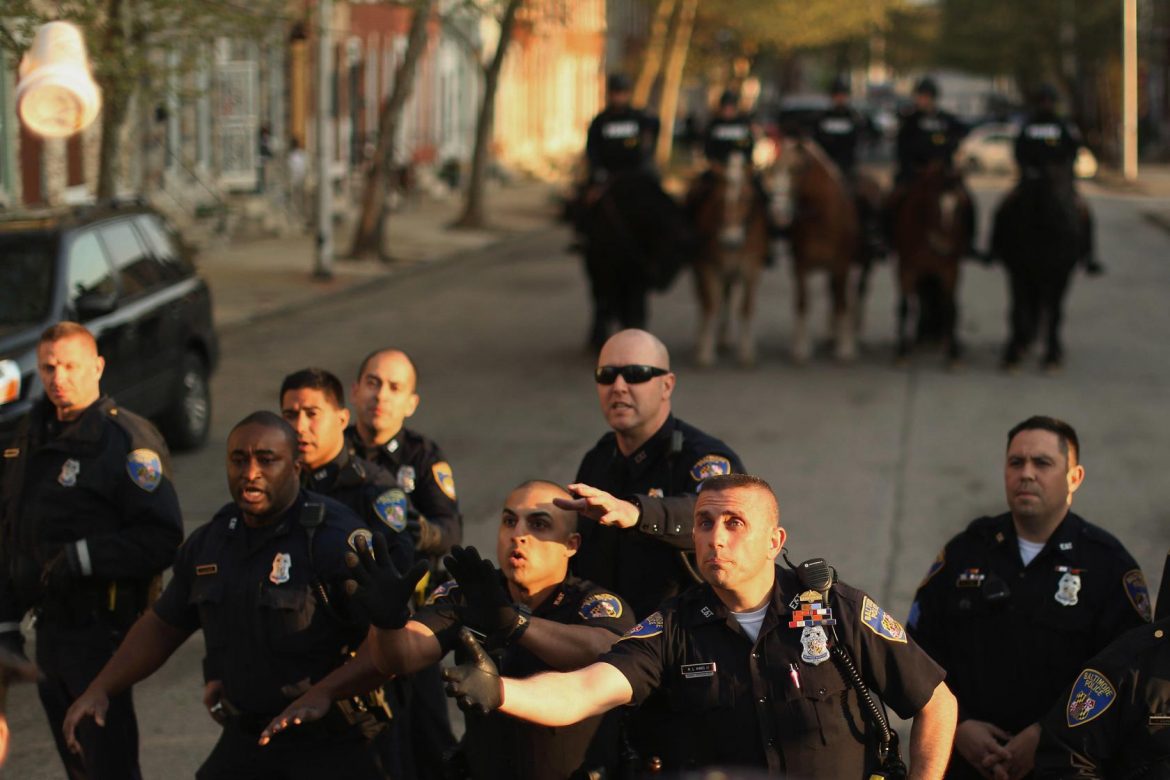This material belongs to: 12WBOY.
BALTIMORE (AP) – Federal prosecutors and a defense team for one of two Baltimore detectives fighting racketeering and robbery charges made their closing arguments Wednesday as a trial winds down in one of the worst U.S. police corruption scandals in recent memory.
The high-profile case is not in the hands of a jury quite yet. Defense attorneys for a second detective who has pleaded not guilty will deliver their final arguments Thursday, and government prosecutors are set for a rebuttal.
Over the past 2 weeks, the jury trial has been dominated by testimony from disgraced ex-detectives who have pleaded guilty to a slew of corruption charges and are cooperating with federal authorities in hopes of shaving years off their prison sentences.
They have provided jaw-dropping revelations about their time on a disbanded police unit called the Gun Trace Task Force, an elite Baltimore police squad that was once praised as a group of hard-charging detectives chipping away at the tide of illegal guns on city streets.
But from the stand in U.S. District Court in Baltimore, four former detectives have testified that the unit was actually made up of uniformed thugs who broke into homes, stole cash, resold looted narcotics and lied under oath to cover their tracks.
Wearing lockup jumpsuits, the ex-detectives have admitted to everything from armed home invasions to staging fictitious crime scenes and routinely defrauding their department.
Derek Hines, one of the two assistant U.S. attorneys prosecuting the eight indicted Baltimore officers in the task force, reminded jurors Wednesday that nobody is above the law.
“This isn’t a case against all police. It is a case against a group of criminals who happened to hide behind a badge,” Hines said during closing arguments.
Detective Daniel Hersl‘s lead defense attorney, William Purpura, is not denying that his 48-year-old client took money – which he described as an act that “embarrassed” the city and the detective’s family – but that it didn’t rise to charges of robbery or extortion.
He attacked the veracity of the four disgraced detectives who testified for the government, noting that they’ve admitted to lying for years to juries, judges, law enforcement colleagues, and their families.
“They want that ‘Get Out of Jail Free’ card,” Purpura quipped, referring to a feature of the Monopoly board game.
Six out of eight indicted Baltimore detectives have pleaded guilty in the corruption scandal and four have testified for the government. The trial is for Hersl and Detective Marcus Taylor, who have pleaded not guilty.
In mid-November, a Philadelphia police officer became the ninth law enforcement agent indicted in the federal investigation. Prosecutors allege he conspired with task force member Jemell Rayam to sell heroin and cocaine seized in Baltimore.
Even public defenders, who often question the testimony of police, are shocked by the sordid revelations exposed at the trial, saying there could be a few thousand tainted cases stretching back to 2008. So far, roughly 125 cases involving the eight indicted Baltimore law enforcers have been dropped.
“This was an ongoing criminal enterprise for many years,” said Debbie Katz Levi, head of special litigation for Baltimore’s Office of the Public Defender. “We don’t believe that that this was merely a rogue unit, but rather a symbol of a flawed culture in need of serious reform.”
The ongoing federal investigation centered on the Gun Trace Task Force speaks to a dark side of police authority in Baltimore at a delicate time for the beleaguered department.
A monitoring team is overseeing court-ordered reforms as part of a federal consent decree reached between Baltimore and the U.S. Justice Department due to discriminatory and unconstitutional policing. The mid-Atlantic city is also fresh off a new annual per-capita homicide record as the starkly divided city had 343 killings in 2017, roughly 56 killings per 100,000 people.
Baltimore Mayor Catherine Pugh says she has not had time to closely follow police corruption trial

This material belongs to: The Baltimore Sun.
Baltimore Mayor Catherine Pugh said she has not had time to closely follow testimony in the trial of two police officers that has raised questions about how widespread corruption has spread through the Police Department.
Asked at a news conference Wednesday if she’d been following the trial, Pugh first said, “No I have not.”
“I have to run the city, I don’t have time to sit in a trial,” she said.
Asked if she’d read about the case, which has been covered extensively in the Baltimore Sun, on television and by some national media, or been briefed on it, Pugh said she hadn’t.
“I don’t even get a chance to read all the articles you write,” the mayor told a reporter. “I don’t have time to just read articles.”
But Pugh said she had heard about some of the testimony and was surprised by it.
“We do hear some of the testimony that is taking place and I think anybody … would be surprised by some of the accusations that were made,” the mayor said.
Pugh said she is confident that the process of complying with a federal civil rights decree and anti-corruption efforts by Darryl De Sousa, her new police commissioner, will be able to restore the public’s trust in the department.
“The reason we have a consent decree is because of some of the activities that have been portrayed by a few members of our Police Department,” Pugh said. “The majority of our Police Department go to work every day to protect the citizens of Baltimore.”
At the trial, which is scheduled to conclude Wednesday, officers who have pleaded guilty and are cooperating with the FBI have unspooled tales of theft and intimidation by the corrupt Gun Trace Task Force and named other officers as being involved in wrongdoing.
Asked for comment in Annapolis, a spokeswoman for Gov. Larry Hogan said “the governor has been following the case closely.”
 info@anticorr.media
info@anticorr.media

